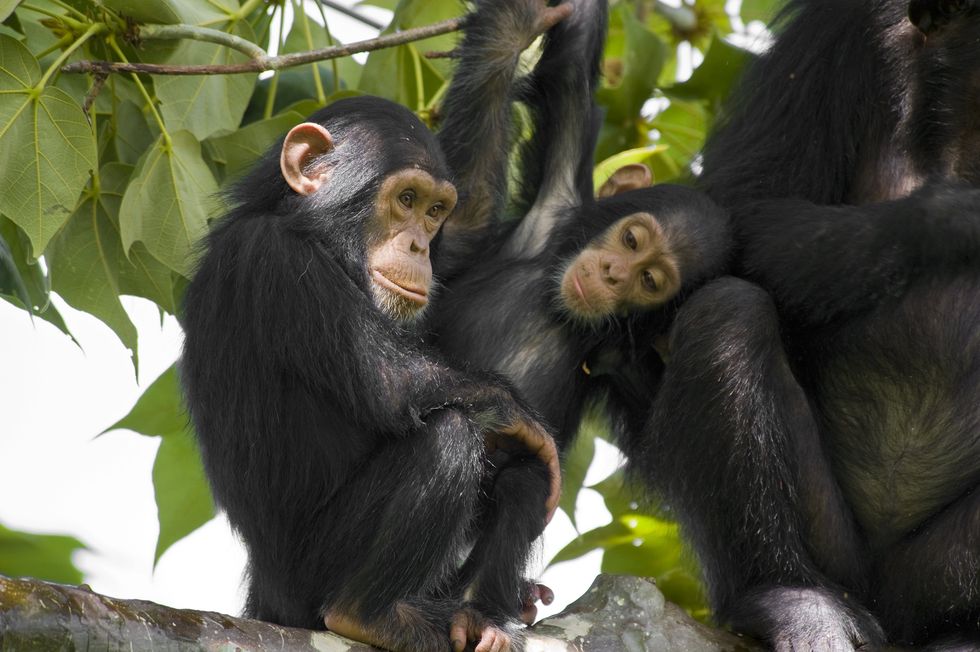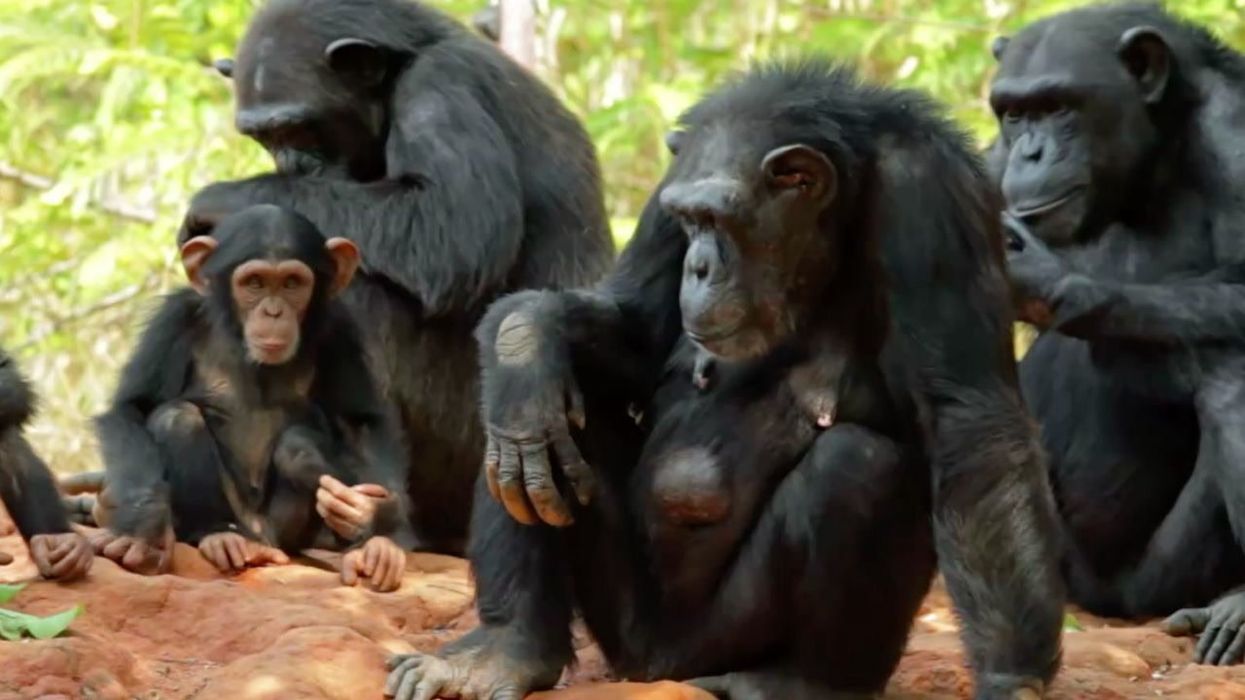Sinead Butler
Aug 03, 2025
Chimpanzees Display Human-like Conversational Skill
Cover Media - Shareable / VideoElephant
Chimpanzees are our joint closest relative and it is thought the primate could have the skills for speech like us, with old clips of the animal in captivity saying "mama" supporting this thought.
Researchers over the years have deduced what distinguishes chimpanzees from us humans who can communicate with words.
However, KTH Royal Institute of Technology phonetician cognitive scientist Axel Ekström and his colleagues reckon this deduction is possibly based on a false premise after studying clips of chimpanzees.
In the research published by Scientific Reports, the researchers explained: "The hypothesized missing link precluding chimpanzees from voluntary jaw-voice coupling evidently does not exist."
Part of the analysis looked at two unrelated chimps that lived in different areas of the world which caught the attention of the team as the videos showed how both seemingly voiced something like "mama" which they had allegedly been taught by their English-speaking keepers.
"It has been argued that 'mama' may have been among the first words to appear in human speech," the researchers said.
Of course, this sound we most recognise from when babies often reach an age where they attempt to talk and eventually say "mama", with the 'm' sound being easy for us to say, and it is also a sound that can be heard in many different languages.

Alongside the two clips, a third recording of a chip saying the words "papa" and "cup" in a TV movie from the 60s was also studied, and it seems chimpanzees are "vocal production learners" as they have the ability to copy and imitate some sounds they hear which the Ekström and his researchers say "corroborate a growing body of evidence".
An additional video that was studied included a chimp named Johnny, who was based at Primate Sanctuary in Florida and apparently "called everyone Mama".
How does this latest research affect our understanding of our relation to chimps?
Consequently, since humans shared a common ancestor with chimps millions of years ago, we may have to rethink the age of our neurological audiovocal system as this research suggests it could be older than suspected, as per Science Alert.
Out in the wild, chimps mostly communicate through gestures but also do express via vocalisations, though when it came to studying the animal's speech, Ekström says reports from decades past were "dismissed in the absence of rigorous analysis".
What factors would have previously affected chimp speech research?
Ekström and his researchers also made a contextual point, as they highlighted how results five decades earlier may have been affected by dubious ethics.
Animals which took part in this research back then would have endured being separated from their mothers and forced to live in unnatural conditions which has then affected their ability to demonstrate their intelligence to their full potential.
An additional consideration when studying animals is a precaution not to humanise them to avoid bias but instead, this does the opposite as researchers can then underestimate their capabilities.
"The failure to demonstrate this half a century ago was the fault of the researchers, not the animals," Ekström and his team concluded.
This article was originally published on 8 September 2024
Why not read...
Is AI causing us to lose our grip on reality?
IBS could actually be 'gravity intolerance' according to bizarre new hypothesis
How to join the indy100's free WhatsApp channel
Sign up to our free indy100 weekly newsletter
Have your say in our news democracy. Click the upvote icon at the top of the page to help raise this article through the indy100 rankings.
Top 100
The Conversation (0)














